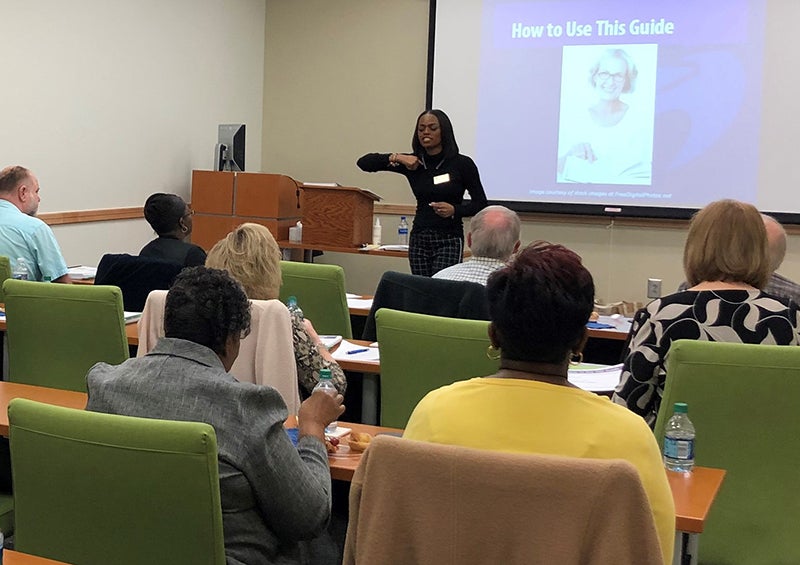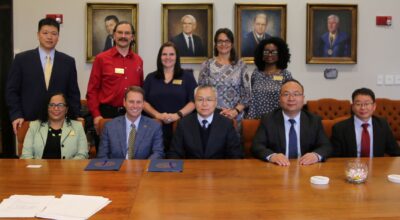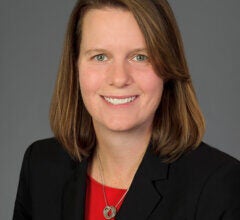RCI hosts dealing with dementia workshop
Published 10:15 am Wednesday, March 27, 2019

- Carrie Harris of the Rosalynn Carter Institute for Caregiving, presenting at a recent free workshop for dementia caregivers.
AMERICUS — Ask someone who has cared for a family member or friend living with dementia and they will tell you it is a loving and rewarding experience. Often, they will say, “I wouldn’t trade this time with my loved one for anything.” However, don’t be surprised when they say in their next breath, “It is also the most difficult thing I have ever done.” There is no denying that dementia caregiving can be exhausting, confusing, and heart breaking.
This week, the Rosalynn Carter Institute for Caregiving (RCI) held a free workshop for 15 dementia caregivers providing information and tips that can make the caregiving journey easier for both the caregiver and their loved one. The workshop, facilitated by Carrie Harris of RCI, received very positive comments from those in attendance. When asked what they would tell others about the workshop, one attendee said, “Please attend this class if you are a dementia caregiver. You will learn how to deal with difficult behaviors, learn of resources available to you, and most importantly, realize the importance of taking care of yourself.”
The four-hour workshop provides an overview of the Dealing with Dementia Caregiver Guide, and each attendee receives a free guide to take home. This large and informative guide provides in-depth information on understanding dementia, creating a safe, dementia-friendly environment, problem solving around dementia behaviors, and, as mentioned by an attendee, caregiver self-care. “Time after time caregivers put aside things like doctor’s appointments, exercise class, yoga class, and time with their friends very soon after they become caregivers,” explains Gayle Alston, director of the RCI Training Center for Excellence. “I know because I did the same thing. How can I have fun when my mother is having such a hard time? How can I take time for myself when there is so much to do for her? Yet over time, as I became overwhelmed, I needed those outlets to stay connected to my non-caregiver life. Exhaustion and isolation lead to frustration and even resentment. That’s a lose-lose situation.” By practicing one of the six listed stress management techniques and other activities provided in the book, caregivers can learn to find those little pockets of time, just for them.
Harris also brings the compassion of someone who has “been there” to the workshop, having experienced dementia care in her family. “When you can share good information with personal examples that you have lived, that really helps the caregivers see how it relates to them personally and how they can apply it to their situations,” Harris explained. As mentioned by several caregivers after the workshop, that connection is what makes the Dealing with Dementia workshops so powerful and helpful. After completing the workshop one caregiver confessed, “Before this workshop I was totally in the dark about so many things.” Information is power and one of the goals of the Rosalynn Carter Institute for Caregiving is to empower family caregivers to have the best possible experience with their loved one.
If you missed the Dealing with Dementia Workshop on March 20, you have another chance to attend one on June 19 from 1-5 p.m. The workshop is free but you must register to attend. Workshop attendance is kept to a capacity of 15. To register, call Carrie Harris at 229-931-2786 or email her at Carrie.Harris@gsw.edu.




